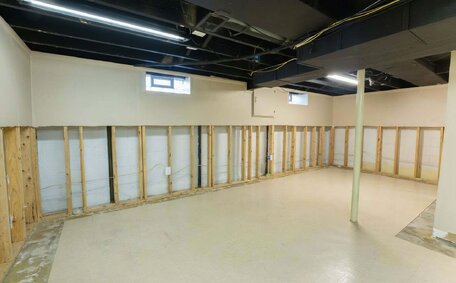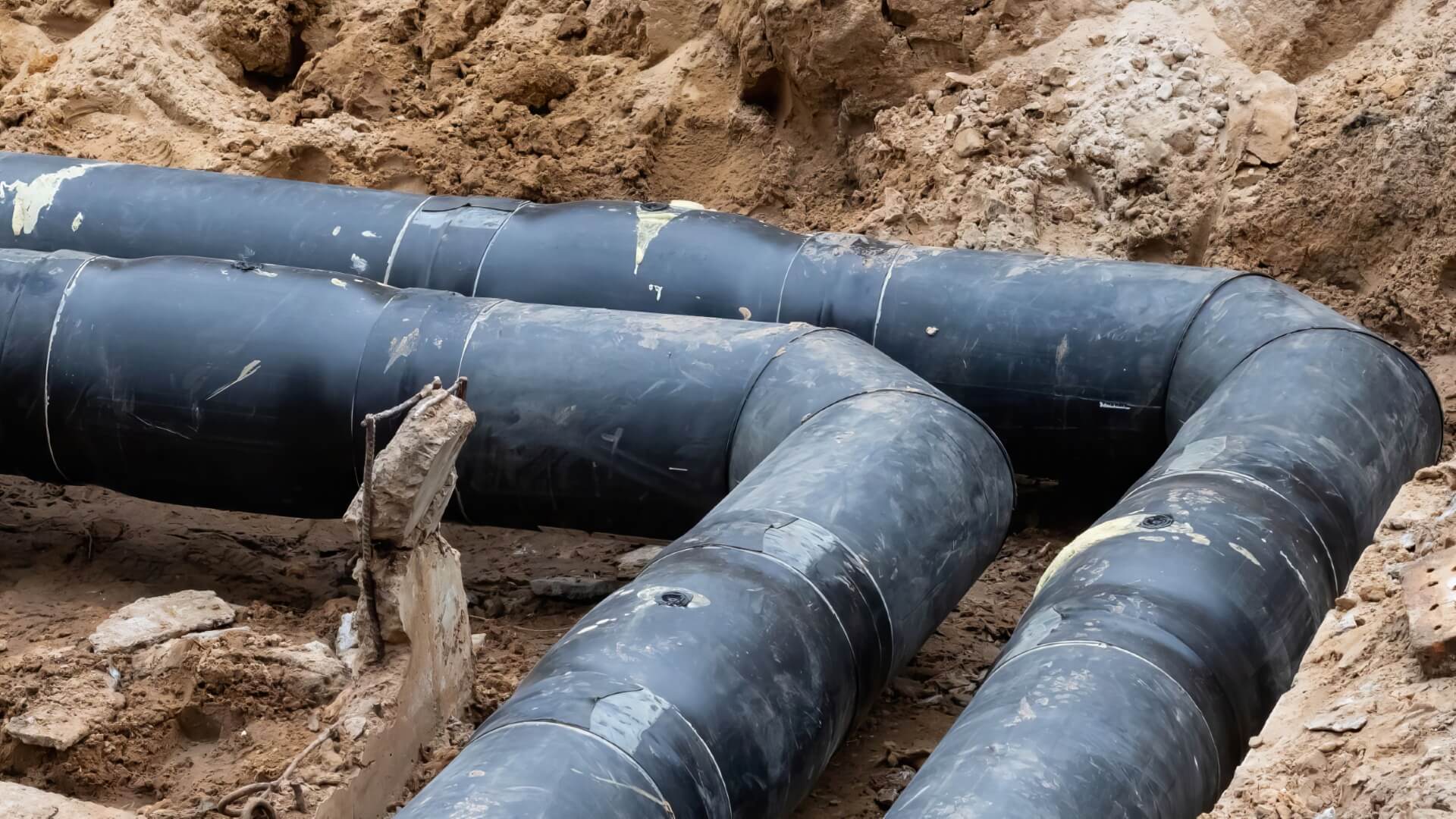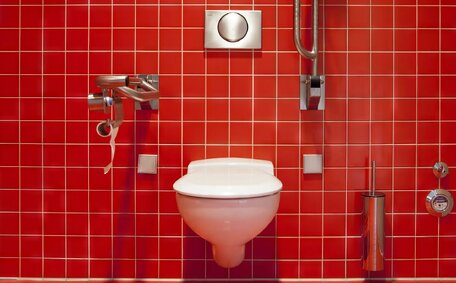What Causes Brown Water from the Hot Water Tap?
Brown tap water is typically a result of rust, sediment buildup, or corrosion in your water heater and plumbing. Accumulated minerals like iron can discolour water by breaking loose and affecting the water supplied to your taps.
Areas with hard water, containing high mineral content, often face greater risks of pipe corrosion and the associated brown water problems. Minerals such as those in hard water cling to pipes and heating elements, building scale that can flake off as brown sediment. Old iron pipes and older water heaters or galvanised pipes are more prone to corrosion, which can lead to brown water tap issues.
If only your hot tap yields discolored water while your cold tap does not, this indicates an issue specific to your hot water system.
To address brown water issues, we suggest flushing your pipes or, if that fails, consulting a licensed plumber to inspect your water heater. They can advise you on solutions like installing filters or replacing outdated equipment if needed to prevent ongoing brown water problems.
Rust and Corrosion Buildup in Pipes and Water Heater
Rust and corrosion in water pipes and heaters are primary causes of discolored tap water, and addressing these can resolve the issue. As metal pipes and tanks age, oxidation can cause water discoloration by creating such iron manganese rust flakes and scale build-up internally, particularly when water comes through aged systems. The hot water in your system can speed up corrosion, dislodging sediment that results in rusty discoloured water.
Be alert for signs of corroded plumbing, such as:
- A metallic taste suggesting sediment is present in your water pipes
- Brown, rusty stains around your tap outlets or fixtures
- Visible sediment, debris or particles in the water
Gradual corrosion may lead to fixture discoloration, warranting a call to professional plumbers. Eventually, holes and leaks can develop, risking water damage, a situation where we recommend immediate attention. Before it reaches this point, as a precaution against dirty drinking water, please call a licenced plumber to inspect your pipes and water heater.
A professional can flush the systems and determine whether filters, repairs, or replacements are necessary to solve your tap water issues.
Sediment Stirred Up From Inside Pipes and Tank
Sediment from minerals like iron, coupled with corrosion, tends to accumulate in household pipes and water tanks over time, possibly resulting in dirty tap water. Usually this buildup sits undisturbed, but certain events can stir particles loose.
Repairs, replacements or sudden changes in water pressure or flow may jostle pipes enough to shake sediment free. Disturbed particles and air bubbles can cause temporary brown water discharge from your taps. Air bubbles and discolouration signify particle disruption, which can impair water clarity until cleared.
To address concerns of brown water, run the cold tap near your hot water tank for 5-10 minutes. This may help flush out dirty water sediment stirred up inside the pipes or tank itself, allowing for clear water flowing through your fixtures. Have your taps run cold as well to clear discolouration from the water heater.
If flushing doesn’t restore clear water, and brown water coming your cold water lines, Contact a licensed plumber. They can inspect your hot water system to determine if pipe scale, corrosion and sediment buildup are causing ongoing brown water requiring pipe cleaning or water heater repairs.
Is Brown Water from the Hot Tap Dangerous?
Brown hot water from your tap usually doesn’t pose a direct health threat. Although discoloration might look concerning, common causes like rust, pipe corrosion and stirred up sediment generally do not render the water safe drink, in most scenarios.
That said, identifying what causing tap water to turn brown is crucial as it should not be used for consumption or food preparation. The particles causing your water turn discolouration could negatively impact the taste and quality of the water your tap dispenses. We recommend resolving any tap water problem by Run both hot and cold water taps near your hot water system to flush sediment, and refrain from using hot water for drinking or cooking until clear.
If flushing doesn’t restore clarity, or you have ongoing concerns about water safety, consult your local plumber. They can thoroughly inspect pipes and your hot water system to determine if repairs like cleaning tanks or replacing corroded pipes may be needed to provide reliably clean water.
Assessing Health Risks of Using Brown Hot Water
Though brown hot water from sediment or corrosion typically signals an issue, it is generally safe, but prolonged use or consumption is unrecommended as a precaution. Rust, minerals, and particles can pose health risks if ingested over time or through open wounds.
We recommend avoiding bathing, showering or washing with noticeably discoloured hot water until a plumber inspects your system. Skin irritation or rashes may occur with repeated exposure. Wait until sediment is flushed and water clarity returns.
Do not drink, cook with or use suspiciously coloured water for food prep. Purchase bottled water and avoid running kitchen tap hot water until a professional has checked pipes and heating equipment. Consider if point-of-use filters are necessary to filter out harmful particles.
Testing can check for unsafe levels of copper, lead and other dissolved metals. This ensures your water is safe and clear, providing peace of mind regarding water quality. Have a reputable plumber take samples from both your hot and cold taps to gain helpful insight.
When Brown Water Requires Calling a Professional Plumber
If brown tap water persists after flushing or water quality issues emerge, it’s wise to call a professional plumber.
- Brown water persists from hot taps despite running both hot and cold water for several minutes.
- Noticeable particles, sediment or foreign debris in the water
- Significant discoloration - water is dark yellow, brown or reddish
- Tap water smells metallic or unpleasant
- Skin/eye irritation occurs after contact with the water
- Water appears unsafe to consume or use for cooking
- Water pressure problems, leaks or other issues accompany brown water
- Brown water returns soon after system flushing or remains for over 24 hours
- Rust stains showing your brown water issues are visible on sinks, tubs and other fixtures
At St Peters Plumbing, our licensed technicians can thoroughly inspect your water supply lines and address any concerns regarding brown water. We determine if sentiment buildup, corrosion, or other factors may cause brown water requiring repairs.
For hot water clarity and safety, call 1300 349 338 or email jobs@stpetersplumbingservices.com.au to book an appointment.
Brown water persists from hot taps despite running both hot and cold water for several minutes.Noticeable particles, sediment or foreign debris in the waterSignificant discoloration - water is dark yellow, brown or reddishTap water smells metallic or unpleasantIdentifying Whether Issue is Inside the Home or Municipal Pipes
Identifying whether brown water originates from household pipes or the main supply is essential. Start by checking if your neighbours are experiencing the same problem with their water by asking them if their hot water also appears discoloured.
Neighbours’ reports of brown water may indicate a supply issue affecting overall water quality. Contact your local water department to report the problem and ask if they are aware of factors impacting supply quality.
If neighbours have clear hot water, the issue likely resides in your home’s hot water system, pipes, or fittings, with mineral buildup or corrosion being probable causes. In this case, contact a reputable plumber to isolate and address the problem.
A quick way to address the most common concerns is to check if brown water is coming from the water main or your internal plumbing by examining your garden tap. Turn on the outdoor faucet and catch some water in a bucket. If the water appears dirty or discoloured here as well, the issue originates before entering your household pipes.
Determining the source of brown water is crucial for addressing the root cause.
If neighbours have clear water, the issue is likely within your home’s hot water system, indicating the need to examine and potentially replace affected parts. Galvanised steel pipes may corrode and release rust and particles over many years. We recommend replacing any pipes showing corrosion.
Likewise, swap out fittings that are stainh hot and cold water full force for 5-10 minutes per tap
Start downstairs then work upward to ensure all pipes are clearedFlushing may temporarily release sediment until the water clears. Avoid using hot water until the water runs clean. Call a licenced plumber if flushing does not bring clarity back into your water within a few hours.
Concluding Thoughts on Troubleshooting Brown Hot Water
A DIY pipe flush is a sensible initial approach to fixing brown water issues. However, if brown water persists or water safety concerns arise, professional assistance should be sought out.
It’s necessary to accurately identify the underlying cause within domestic plumbing or municipal supply lines. Checks with neighbours and local authorities can provide useful clues. In most cases, inspection from a qualified plumber is required to pinpoint the root of the problem.
Replacing corroded pipes, old fixtures or installing filters may be necessary long-term solutions if flushing proves insufficient. At St Peters Plumbing, our licenced technicians have the expertise to fully assess water quality issues and restore safe, clean hot water through appropriate repairs or system replacements.
For expert plumbing services in Sydney, contact St Peters Plumbing at 1300 349 338 or email jobs@stpetersplumbingservices.com.au, and let us restore clarity to your hot water.






